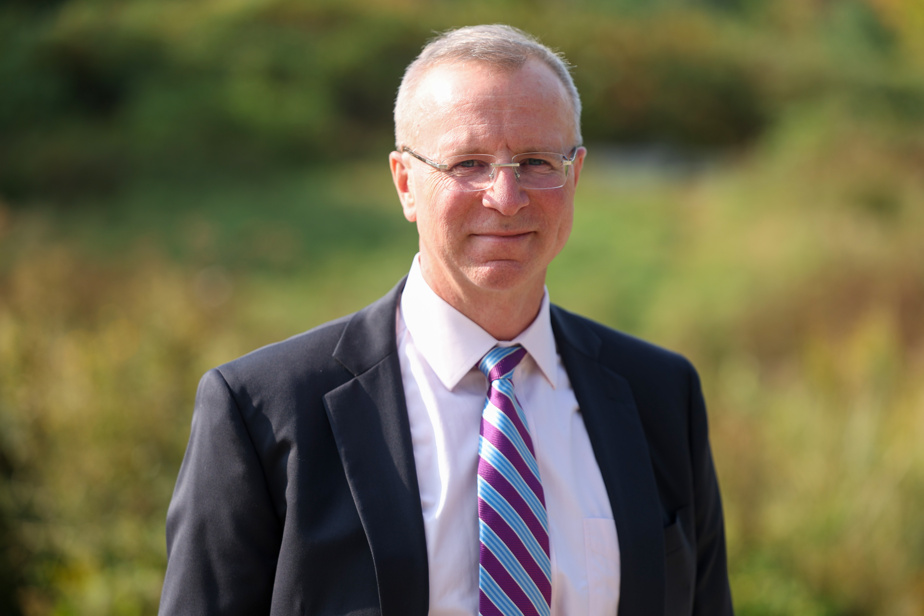I’m very early. I get up around 4:30 a.m. And I usually start my office day around 5:30 a.m. I do 90% of the things I need to do in a day by 8:30 a.m. After that time, I start calls with customers, team, etc. It’s very rare that I end my day after 5 p.m. unless I have a call with Asia or something.
I stopped eating sugar and it changed my life. I was very sick in 2020. I had long COVID-19 before we even knew what long COVID-19 was. I struggled for seven months, two of which were very difficult. It changed many of my habits. I became obsessed with health. Previously, I stood in front of the vending machines to buy a chocolate bar every day in the afternoon. I have more energy today than I did 30 years ago. I feel like I’m 14.
Unsweetened energy drinks. It’s a different version of coffee. It’s a stimulant. It’s a bit like my replacement for chocolate bars.
I have always had great admiration for Jeremy Grantham of the Boston investment firm GMO and Ray Dalio of Bridgewater [an American hedge fund]. I don’t always agree with them. But they make me think and, ultimately, that’s what I try to do with my clients, make them think.
I really like DuoLingo [an application for learning languages]. My kids use it too. If this application had existed when I was young, I am convinced that I would speak seven or eight languages. For the past six months, I’ve been obsessed with Worldle, a game that involves guessing a country in six attempts based on an image. [Not to be confused with Wordle, a game that involves guessing a five-letter word in six attempts.]
I go to the gym five days a week. I have five children. I often start my “Uber shift” at 5 p.m. with a girl who goes to the theater, one who plays soccer, and another who has a dance class. That leaves me little time, but what we do a lot as a family is hiking.
The one that people know best is that of the financial crisis because in 2007 I wrote a document on speculative real estate bubbles. I published a book in 2010 which talked about a change in economic regime which I called “The era of uncertainty”. I emphasized that growth stocks were going to dominate the markets for different reasons. It took a while for it to become dominant, but that’s exactly what happened. I also published an analysis in 2014 where I talked about the end of the Chinese model. The things written in this document have almost all happened. I was talking in particular about the price of a barrel of crude oil which was worth almost US$100. I predicted it would retreat to US$20 and nine months later it retreated to US$24. I could also highlight when I went bullish in March 2009 and when I made a similar decision in spring 2020.
The majority of clients buy our research primarily to find out how to position their portfolio. Let’s say I learned a lot in 2017. It wasn’t my best year. I have given myself a report card at the end of every year for 20 years and in 2017 I gave myself a “D”. I completely missed market leadership in 2017 when it is generally in the positioning of sectors and market factors that I obtain the best results in my research. That year, growth and consumer discretionary stocks did well, but certain cyclical factors also worked, which you rarely see together.
I have a bit of the feeling of being there and experiencing it right now at 54 years old because I surrounded myself with former colleagues whom I really appreciate. It’s the most satisfying part of my career. I’m doing what I love to do, which is research. It’s very rewarding to be able to educate people about macroeconomics. It’s more of an early retirement, but I wouldn’t go back to work for a bank in New York.
Soft landing.
Now a resident of Richmond, Virginia, François Trahan has over 25 years of experience in finance and was inducted into the Institutional Investors Hall of Fame as a strategist in 2016.
Aged 54 and at the head of his own company – Trahan Macro Research – he advises a clientele mainly made up of institutional investors.
An economics graduate from the University of Montreal, his approach is based on an understanding of the macroeconomic forces of economic cycles and how interest rates and the monetary policy of the US Federal Reserve help shape trends.
During his career, he worked for several major investment banks. After starting at BCA Research in Montreal, he subsequently worked at Bear Stearns where he announced, in 2007, the end of the speculative bubble in real estate.
